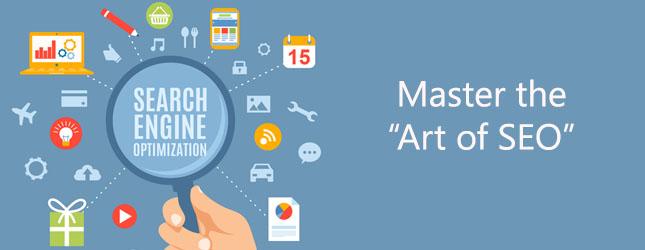On-site SEO, is an optimization for the search engine that is done on the site itself. The job is to make the parts of each page of the website appealing to the search engines. If you had already set up your website then what we need to do is modify the parts of your website especially those given more weights by the search engine in the undergraduate in your organic search result pages. The seo service is the important factor to rank your website. So, hire a seo services to reach your business goal.
But do not forget that even if you are trying to make your website appealing to the search engine, it should also be appealing to the humans who visit your site. Major search engines, ie Google, Yahoo, MSN, will penalize websites which are made for the search engine alone. So instead of reaching a higher ranking, as a result of the search, if the site has already been penalized, you will never find it on the SERP, not even on the last page of it.

Why should they penalize websites intended for search engines alone?
Search engines are just tools. They are designed so that users would easily find the specific website that contains the information they are looking for. Now if you are going to make a website that does not have content that are useful to Internet users then you are just upsetting the normal result of the searches done through search and you are just helping the search engine not to comply with your missions and visions. So to avoid this scenario, the people behind the search engines have decided to penalize this type of sites. In other words, what we need to do is the correct and acceptable modification of the parts of the site.
On-site SEO application
1. Domain
If you do not have the set up yet your website and then examine the domain registration that is relevant to the subject of it.
For example, if you want to build a website that talks about basketball, basketball products, events and basketball, then you need to use a domain that mentions basketball, for example. "Yourbasketballinfo.com". However, if you already had a domain registration that is not relevant to the blog topic, it's just ok. But it would be better if the domain is relevant to the topic for your higher weight SEO.
2. URL
The URL of each page of your blog should contain important information about the page. For example, on a page that talks about the Adp P event calendar, you can use the URL: "yourbasketballinfo.com / Adp P-events calendar.
The reason for doing this is because there are other bloggers who tend to link on your blog page by simply using the URL instead of using anchor text. In other words, a URL that contains information about the page will give the Internet users as well as the search engine relevant information about that page. While Internet users will be drawn to click on the link on other sites part, the search engines will give more weight to that page in particular the keywords found in the URL. But then you need to avoid excessive use of keywords in the URL so it can cause a feather just from the search engine.
3. Page Title
Make the Page Title accurately describe the blog. In our example, our blog is about basketball, basketball products, events and basketball. Therefore, by making your Page Title accurately describing the blog, it should be "Basketball: Information, Products and Events". Make sure that each has its own Page Title Page otherwise the search engine will be forced to consider another page with the same page titles as duplicate copies and therefore the search engine will also be required to choose 1 as homepage and the others will be thrown in the trash for they are only two copies. And one more thing, the title page should be short, but very descriptive.
4. "Description" Meta tag
SEO gurus have different thoughts about the "Description" meta tag of the web page. Others say it is not already used by the search engines in the ranking pages. But others say that search engines are still giving weights to the content of the "Description" meta tag. Whatever is true, we must make use of it. It is because often the search engines use the content of it as the description of the site listed in the SERP.
5. Content
Your blog content is the articles you posted on your blog. Make sure your articles are quality and relevant to your blog. Make use of the relevant keywords and their synonyms in composing your article. Properly use the H (H1, H2, H3, H4) tags and the "black" (strong) text style. SEO Some experts have said that search engines are giving greater weight on the keywords delimited by the "H" tags and "Bold" tags. And of course, make sure you interlink your articles by using your keyword targeting as the anchor texts. And if you use the pictures in your articles, make use of the "ALT" tag.
6. Sitemap
HTML sitemaps could be useful to your visitors to find the information they are looking for. However, HTML sitemaps and also the XML sitemaps is very important so that the search engine will find every page and spider of your blog.

